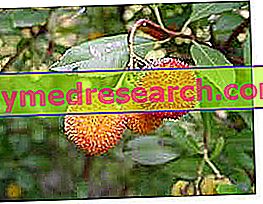
What is Thalidomide Celgene?
Thalidomide Celgene is a medicine that contains the active substance thalidomide and is available as capsules (50 mg).
What is Thalidomide Celgene used for?
Thalidomide Celgene is used to treat multiple myeloma (a cancer of the bone marrow) in combination with melphalan and prednisone (anticancer medicines) in patients who have not been previously treated for this disease and are over the age of 65; in younger patients it is used when they are not treatable with chemotherapy (anticancer therapy) at high doses.
Thalidomide Celgene should be prescribed and dispensed according to a special program aimed at avoiding exposure of the fetus to the medicine.
Because the number of patients with multiple myeloma is low, the disease is considered "rare" and Thalidomide Celgene was designated an "orphan medicine" (a medicine used in rare diseases) on November 20, 2001.
The medicine can only be obtained with a prescription.
How is Thalidomide Celgene used?
Thalidomide Celgene therapy should be started and monitored under the supervision of a doctor who specializes in the use of drugs that regulate the immune system or anticancer drugs. The doctor must also be aware of the risks associated with thalidomide and how the use of the medicine should be checked.
The recommended dose of Thalidomide Celgene is four capsules a day taken at the same time, preferably before bedtime. The capsules can be taken on a full or fasting stomach. Thalidomide Celgene can be used for up to 12 treatment cycles, each lasting six weeks. Your doctor may delay, reduce or stop taking your doses if you experience certain side effects, including blood clots, neurological lesions, a skin rash, a drop in heart rate, fainting or drowsiness. Each patient should also be given an anticoagulant (a drug that prevents the formation of blood clots) for at least the first five months of treatment, after a careful assessment of the individual risk.
Patients with severe liver or kidney problems should be closely monitored for any side effects. The use of Thalidomide Celgene is not recommended in patients under 18 years of age due to the lack of safety and efficacy information for this age group.
How does Thalidomide Celgene work?
It is believed that the active ingredient in Thalidomide Celgene, thalidomide, acts by blocking the proliferation of cancer cells and by stimulating some specialized cells of the immune system (the body's defense system) to attack cancer cells. This can help slow the progression of multiple myeloma.
How has Thalidomide Celgene been studied?
The effects of Thalidomide Celgene were first tested in experimental models before being studied in humans.
The efficacy of Thalidomide Celgene was the subject of a main study involving 447 patients with multiple myeloma. The patients consisted of subjects over 65 years of age as well as from subjects of inferior age not treatable with chemotherapy at high doses. The study compared the effect of melphalan and prednisone, taken with or without Thalidomide Celgene, on survival times.
The applicant also presented the results of a study on the association of Thalidomide Celgene and dexamethasone as an "induction" therapy for multiple myeloma to be used before high-dose chemotherapy. However, the applicant withdrew the application during the evaluation of the medicine.
What benefit has Thalidomide Celgene shown during the studies?
Survival times were greater in patients treated with Thalidomide Celgene in addition to melphalan and prednisone. In patients treated with melphalan and prednisone a mean survival of 33.2 months was observed from the start of the study compared to 51.6 months observed adding Thalidomide Celgene.
What is the risk associated with Thalidomide Celgene?
Most patients taking thalidomide have side effects. The most common side effects (seen in more than 1 patient in 10) are neutropenia (low levels of neutrophils, a type of white blood cell), leukopenia (low levels of leukocytes, another type of white blood cell), anemia (low counts of red blood cells), lymphopenia (low levels of lymphocytes, another type of white blood cell), thrombocytopenia (low blood platelet levels), peripheral neuropathy (neurological lesions that cause tingling, pain and numbness in the hands and feet), tremor, dizziness, paresthesia (abnormal puncture sensations), dysesthesia (decreased sensitivity to touch), drowsiness, constipation and peripheral edema (swelling, usually of the legs). For the full list of all side effects reported with Thalidomide Celgene, see the Package Leaflet.
Thalidomide is a potent "teratogenic" agent in humans, meaning it has harmful effects on the fetus and induces severe life-threatening congenital malformations. The severe conditions required to avoid the establishment of a pregnancy and the exposure of the fetus to thalidomide must be observed by all patients, men and women, who take this medicine.
Thalidomide Celgene should never be used in the following groups of patients:
- pregnant women;
- women of childbearing potential, unless they take all the necessary measures to exclude the existence of a pregnancy at the beginning of the therapy and to avoid the establishment of a pregnancy during the therapy or immediately after its conclusion;
- patients who are unable to follow or adopt the required contraceptive methods.
Thalidomide Celgene should also not be used in patients who may be hypersensitive (allergic) to thalidomide or any of the other ingredients. For the full list of usage restrictions, see the package leaflet.
Why has Thalidomide Celgene been approved?
The Committee for Medicinal Products for Human Use (CHMP) concluded that the benefits of Thalidomide Celgene outweigh its risks, in combination with melphalan and prednisone, in first-line therapy of patients with previously untreated and non-inferior ages multiple myeloma at the age of 65 or who are not suitable for high-dose chemotherapy, provided that strict measures are provided to avoid exposure of the fetus to thalidomide. The committee recommended that Thalidomide Celgene be given marketing authorization.
What measures are being taken to ensure the safe use of Thalidomide Celgene?
The pharmaceutical company that produces Thalidomide Celgene is committed to setting up a pregnancy prevention program in each Member State. It includes a letter and information packages for healthcare professionals and patient leaflets, which detail the measures to be taken to use the medicine safely. A specific card is also provided to patients to ensure that they take all appropriate safety measures. Each Member State will also ensure that doctors and patients receive information materials and appropriate patient records.
Finally, the pharmaceutical company will collect data on the possible use of the medicine outside the authorized indication. On boxes containing Thalidomide Celgene capsules will be affixed a warning indicating the danger of thalidomide for the fetus.
More information on Thalidomide Celgene
On 16 April 2008, the European Commission issued a marketing authorization for Thalidomide Pharmion, valid throughout the European Union. The marketing authorization holder is Celgene Europe Ltd. On 22 October 2008 the name of the medicine was changed to Thalidomide Celgene.
For a summary of the opinion of the Committee for Orphan Medicinal Products on Thalidomide Celgene, click here.
For the full EPAR of Thalidomide Celgene, click here.
Last update of this summary: 01-2009.



